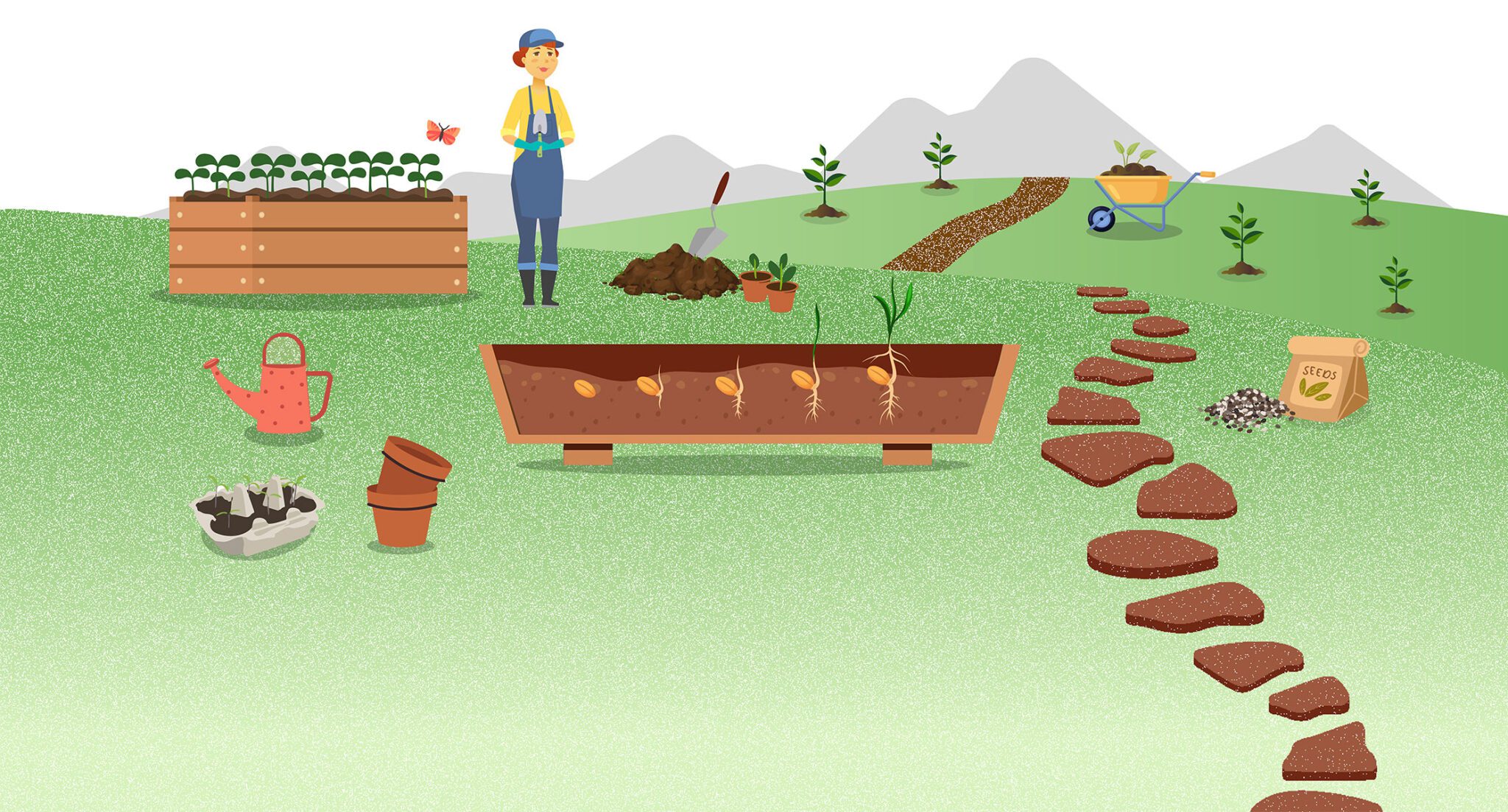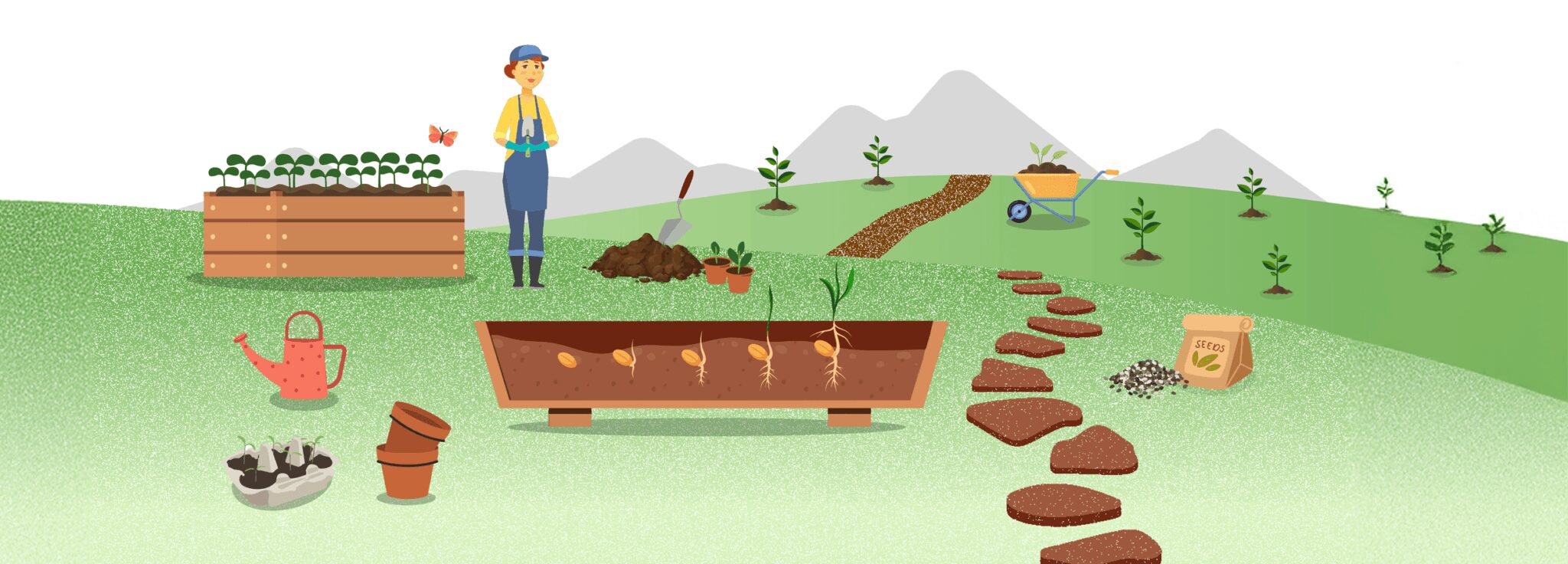

Curious
Planting the Seed
You’re drawn to the feeling that comes from tending plants or being in nature, and you’ve seen how powerful that connection can be in others. You’re curious about “therapeutic horticulture” and wondering if/how it belongs in your life. If so, this path is for you.
Have you ever felt a sense of peace while tending to a garden or houseplant, or while spending time in nature? You’re not alone. Research shows that spending time with plants and nature can ease stress, lift your mood, and create a deeper connection to yourself and the world around you.
At Root in Nature, we believe in the powerful health benefits that happen when you engage with plants and the natural world, even in small, everyday ways. Whether you’re exploring this path for personal well-being, creative fulfillment, or to bring more calm into your life, this is a perfect place to begin.




Understanding the Terms
Before we dig into ideas and inspiration, it helps to understand the two main terms you might hear: Horticultural Therapy (HT) and Therapeutic Horticulture (TH).
We’ve created a short video to explain the difference in plain language, so you can decide what fits your interests and goals best. By watching the video, you’ll gain insights into how individuals from diverse backgrounds apply these practices in settings like community gardens, schools, healthcare facilities, and personal spaces.

Horticultural Therapy (HT)
is a clinical practice facilitated by a registered horticultural therapist. It involves structured, goal-oriented activities designed to achieve specific therapeutic outcomes within an established treatment or rehabilitation plan.
Therapeutic Horticulture (TH)
is a professionally facilitated practice that uses gardening, and other plant and nature-based activities to support people in working toward their health and wellbeing goals. Many clinicians also integrate therapeutic horticulture training with their professional credentials to support goal-driven, clinically meaningful outcomes.
At Root in Nature, we offer education and support in therapeutic horticulture, not clinical horticultural therapy. That said, the GrowTH Network is designed to be a welcoming and valuable resource for both TH and HT practitioners, because regardless of title or setting, we share common ground in our values, goals, activities, and the importance of community.
If, after watching the video, you feel that HT is a better fit for your path, you can explore formalized training through organizations like the American and Canadian Horticultural Therapy Associations. At Root in Nature, we’re here to support you in whichever direction feels right for you.


Interested in Learning More?
If you’re envisioning a future where plants and nature become part of your work or practice, but you’re not sure where to begin, Root in Nature offers training options that can meet you where you are.
Our learning opportunities range from self-paced, introductory courses to more structured pathways that support deeper skill-building in therapeutic horticulture practice. Whether you’re simply exploring what this field could look like for you, or beginning to imagine how it might integrate into your professional role, you can choose an option that feels both accessible and aligned with your goals.
All learning is delivered online and can be accessed by practitioners around the world, allowing you to explore at your own pace and in your own time.
If you’d like to learn more, you’re welcome to explore our full range of courses when you’re ready.

Work with a team who might benefit from training too?
Explore our Team Training Program to equip your staff or colleagues with the skills to lead therapeutic horticulture sessions.
Explore the Science Behind the Calm
If you’ve ever wondered why gardening feels so good, or want to explain it to a friends or colleagues, you’ll love our Therapeutic Horticulture Research & Readings Database.
It contains a growing collection of real-world studies, articles, and stories that explain how and why plants support our well-being, from reducing anxiety and improving focus, to easing burnout and enhancing quality of life.
You’ll Find:
- Easy-to-read summaries of scientific studies
- Articles on how nature supports emotional and physical health
- Stories of how gardening is used in schools, hospitals, communities, and at home
- Resources to help you share the benefits of therapeutic horticulture with others
Maybe you’re just beginning to notice how something as simple as tending a plant can shift your mood or mindset. If you’re curious about what’s happening beneath the surface—both in you and the soil—this is a great place to start exploring.



Stay Connected
Subscribe to our newsletter for the latest research, practical strategies, community features and events.
Follow us on Instagram, YouTube and Linkedin for resource giveaways, TH in action and seasonal inspiration.
Explore our blog for fresh insights, deeper dives on topics and real-life stories to inspire your TH practice.

